#ride-sharing
An Experiment in Error? Maven Bites the Dust, GM Lauds 'Insights' Gained
The great General Motors ride-sharing experiment is over. At least for now. Maven, which hit parking lots in 2016 and eventually expanded into the nation’s driveways, was GM’s attempt to put its vehicles to work, rather than sell them to retail or fleet customers like some kind of dinosaur.
For a fee, users could access the GM-owned fleet of Maven products to perform random driving tasks. Short trips, mainly, in the absence of an Uber or Lyft ride or participation in a more formal car-sharing agreement. Tap that app, find the car, unlock it, and drive off. Abandon somewhere after you’re done.
Well, that’s what GM just did with Maven.
Uber Goes Old School With New Delivery Services
With a pandemic suppressing the world’s need for transportation, Uber has kept itself busy by offering free rides to healthcare workers and expanding its food-delivery service, Uber Eats. Initially, that meant activating the program in more countries. The ride-hailing company has since added ways for businesses to manage meal plans for employees working from home while attempting to supply drivers with masks and disinfectant sprays.
This week, the company said it will expand the ways in which customers interface with these services. But this new method has been popular for well over a century. In a bid to encourage older Americans to use its food-delivery services, Uber has implemented a telephone line designed to help Luddites trapped in their homes. Customers can now dial a toll-free number and discuss menu options with an Uber representative who will help then finalize and pay for their order.
Zipcar Expands Options Amid Pandemic, Auto Rental Agencies Cut Prices
With auto manufacturers, dealerships, and insurance agencies scrambling to find a way to retain customers during a global pandemic, now is the season of trying new things. Insurance companies have begun offering refunds on premiums for certain people who can’t afford to pay (and aren’t driving) during the health crisis. Automakers are offering heavy incentives on just about everything, cutting additional breaks for those left unemployed. Dealers are swapping to digital sales models to avoid as much direct contact with buyers as humanly possible while still making a sale.
But what are ride-sharing companies supposed to do?
Zipcar has a few ideas. With ride-hailing services and taxi cabs being viewed by many as mobile germ carriages, you wouldn’t expect shared vehicles to be in demand. Zipcar is making a few changes in a bid to make it all the more appetizing. Rather than relying on its typical hourly (or daily) price rates, it has expanded its Dedicated Zipcar vehicle program for weekly rentals. But that puts the business up against traditional rental firms, which have slashed their prices to an almost comical degree.
Public Transit Is for Squares: Citron's Ami Calls All Non-conformists
Given the size and modest specs of Citroën’s Ami city car, you’d think post-war rationing was still a thing in France.
The Ami, revealed Thursday, is a production version of the Ami One concept PSA Group debuted at last year’s Geneva Motor Show. It’s small, short, looks the same coming as it does going, and doesn’t require a driver’s license. It could be a ticket to freedom for a 14-year-old, but first they’ll have to get used to living life at no more than 28 mph.
Lyft Follows Uber, Promises to Prioritize Rider Safety
At the start of this month, Uber released a safety report in a bid to address concerns surrounding rider welfare. Not to be outdone, its main competitor also took steps to convince the masses that it’s also doing everything within its power to keep customers safe.
Lyft is forming a council of experts to assist the ride-hailing company in revising safety initiatives for riders and drivers. The group will include representatives from the Rape, Abuse & Incest National Network (RAINN), It’s On Us, the National Sheriffs’ Association, the National Association of Women Law Enforcement Executives, and the National Organization of Black Law Enforcement Executives. As with Uber’s report, Lyft is focused on incidents of sexual assault — and blaming society for any problems it may have.
Newly Released Uber Safety Report Focuses On Sexual Misconduct, Murder
Uber released its first safety report on Saturday, primarily to address concerns surrounding rider welfare. The media has become increasingly critical of Uber as a brand after its corporate culture was dubbed toxic — allegedly loaded with sexism and financial progress by any means necessary. Following a fatal accident involving one of the company’s autonomous test vehicles, many grew fearful that the company hadn’t fallen into the habit of promoting (or appreciating) public safety. Hoping to assuage some of those concerns, Uber put together its own safety report.
Earlier in the month, the ride-hailing service said it had received reports of 3,045 sexual assaults in the United States in 2018, with 9 people murdered (nearly half of them drivers… fortunately?) and 58 crash-related deaths. Uber said these issues only affected 0.0002 percent of the 1.3 billion rides the company orchestrated in the United States that year.
The new study attempts to frame data, accumulated over 21 months, against national averages to show that Uber is simply suffering from issues inherent to our society. While noting that an estimated 44 percent of women in the U.S. have been a victim of sexual violence seems like an odd way to absolve oneself from wrongdoing, Uber’s just a fancy cab service trying to distance itself from systemic fears that may have not have been entirely fair.
Uber Loses License in London, Deemed Unsafe by Regulator
Transportation for London (TfL) announced it has informed Uber that it will not be reissued a license to operate in the UK capitol, citing concerns over customer safety. TfL had previously declined to renew the ride-hailing business’ private hire operator license, which expired on September 30th, saying it was unsatisfied with the number of drivers it found “fit and proper to hold a licence.” Then it changed its mind, offering a two-month extension.
Now it’s claiming that at least 14,000 Uber trips taken within the city included drivers linked, via their app profiles, to cars they were not legally registered to drive. Having done an impromptu survey of his own (done as unscientifically as possible by just asking drivers if they owned the vehicle), your author found the number of “rogue” Uber drivers in New York City to be about one in five.
While easily framed as a gotcha moment, that ratio isn’t really any different from what I’ve experienced with NYC’s sanctioned yellow (or green) cabs. But that doesn’t exactly make it a non-issue either — just more of the same.
Uber to Launch Pet-based Pricing in Select Cities
Uber is testing pet pricing in North America to see if it can minimize surprise cancellations stemming from unexpected animal passengers while simultaneously hoping to make itself some money. The program, entitled Uber Pet, launches in select cities on October 16th and tacks on a small surcharge while giving drivers the right to refuse service in advance.
As difficult as it is to believe, not everyone loves animals — and even fewer like having strange ones making a mess of their personal vehicle. One of the most common complaints among Uber drivers is people bringing aboard pets unannounced.
Center for Auto Safety Asks Uber/Lyft to Stop Using Recalled Cars
Last week, the Center for Auto Safety announced it had reached out to America’s ride-hailing giants to encourage them to stop allowing drivers to use vehicles under active recalls. The group’s release references a Consumer Reports study from this spring that alleged 1 in 6 automobiles commissioned by Uber and Lyft had unresolved defects in the NYC and Seattle areas.
“Unrepaired recalled vehicles are dangerous and can kill or injure drivers, passengers, bikers, or pedestrians. Exploding Takata airbag inflators which have resulted in at least 24 deaths worldwide, GM ignition switch failures which have resulted in at least 170 deaths in the U.S., and hundreds of other less-publicized defects pose equally significant threats to public safety,” explained the advocacy group. “Yet, recent studies from Consumer Reports and others have found concerning numbers of rideshare vehicles with unrepaired recalls on the Uber and Lyft apps.”
Uber, Still Unprofitable, Focused on 'Healthy Growth'
The futuristic world of personal transportation sans ownership was, once again, called into question after Uber posted its largest-ever quarterly loss on Thursday. The $5.2 billion dollar dent was accompanied by a Q2 that also showcased slowed growth, the worst the ride-hailing firm has ever seen.
While Uber attributed a large portion of its losses ($3.9 billion) to the employee stock compensations it needed to issue after its initial public offering in May, the remaining $1.3 billion still represents increased losses over last year’s results. Uber also said it expects to lose $3 billion through the end of 2019.
Despite revenue continuing to grow to roughly $3.1 billion, up 14 percent from last year, it’s the slowest quarterly growth rate in Uber’s history. However, the company claimed that “healthy growth” is what it’s primarily seeking at this time — and made a point of noting so on numerous occasions.
GM's Maven Packs Up, Leaves Town(s)
Anyone following the saga of Uber and Lyft know that mobility services are not — not yet, anyway — a money tree that bears unlimited financial fruit. The same can be said of mobility services offered by automakers.
General Motors’ car-sharing service, Maven, like those more well-known companies, is still a fledgling operation experiencing growing pains. Its latest growth move involves shrinking, with the mobility brand dropping out of eight U.S. markets.
Uber Drivers Protest Ahead of Friday's IPO
Uber and Lyft drivers from the world over are going on strike today to protest the company’s working conditions and pay. However, the careful timing of the event also appears to be aimed at torpedoing the brand’s fast-approaching IPO.
While Uber exists as a corporate middle man between riders hunting for a vehicle and drivers seeking a fare, the company’s official position is that both are customers. As Uber sees it, it’s providing both with access to its platform and thereby offering a service. But many drivers disagree and claim the only way to make a living is to work ludicrously long hours, which they believe should at least entitle them to be called employees and warrant some benefits.
Lyft IPO Makes a Splash, Followed By a Flop
Despite playing host to what everyone presumed would be a very hot property, Lyft’s IPO hasn’t panned out as expected. While the company’s Friday stock debut was strong, April 1st was less promising, with Lyft’s share price slipping by nearly 12 percent in a single day. It’s now well beneath the target price, casting doubts about the financial sustainability of mobility firms.
It’s a complicated issue. Lyft was valued at more than $22 billion when it went public last week, but investors are concerned with the company’s inability to turn a profit. Last year, the ride-hailing giant posted a net loss of nearly $1 billion. With Uber likely to announce its own IPO soon (and likely face similar headwinds), many are concerned.
Trademark Foreshadows Launch of GM Subscription Service 'DriveScription'
While we’ve bashed them for being one of the most expensive ways to acquire a vehicle, automotive subscription plans have becoming increasingly popular among premium nameplates. General Motors already has one exclusively for Cadillac but it appears that it’s setting up another for its less illustrious brands.
Late last month, the automaker filed a trademark application to register the name “DriveScription” with the United States Patent and Trademark Office. The document clearly states that the term will be used in association with the Goods and Services categories of automotive subscription services, rental services, and vehicle sharing. Considering that Maven already handles most of the short-term rental and ride-sharing aspects of GM’s new mobility services, DriveScription is almost certain to be the mainstream equivalent to Book by Cadillac.
You Won't Have to Buy One of Volkswagen's Upcoming Electrics to Drive One
A product onslaught with a questionable sales future is on the way from Volkswagen, but Americans, as well as Europeans, won’t necessarily have to purchase one to add it to their lifestyle.
Under its “We Share” ride sharing venture, Volkswagen plans to offer up its line of I.D. electric vehicles to urbanites who don’t own a car, but still wish to use one from time to time. Users won’t have to worry about a disappearing tax credit, that’s for sure.



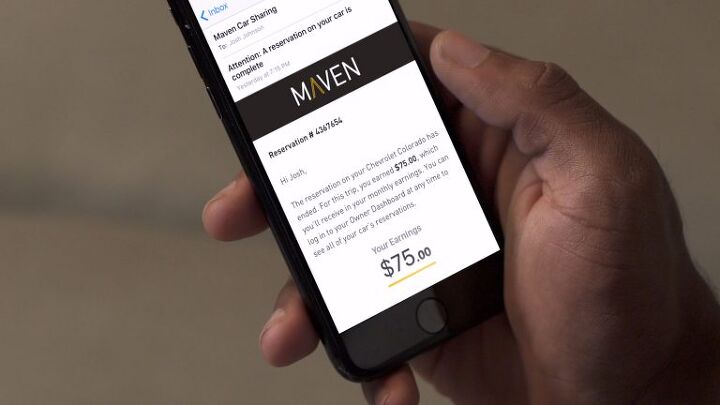

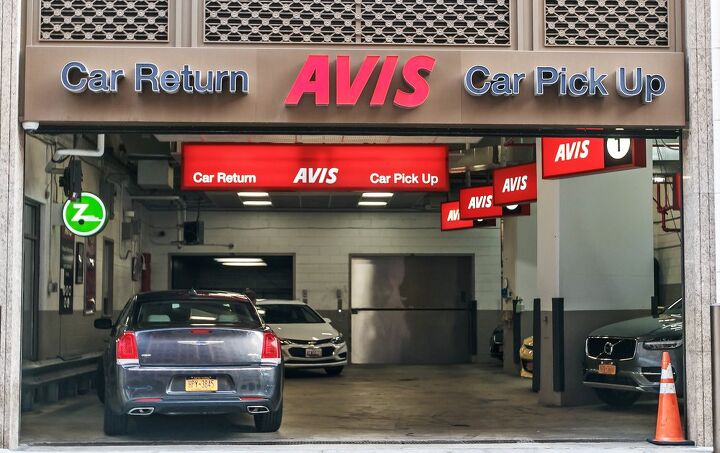
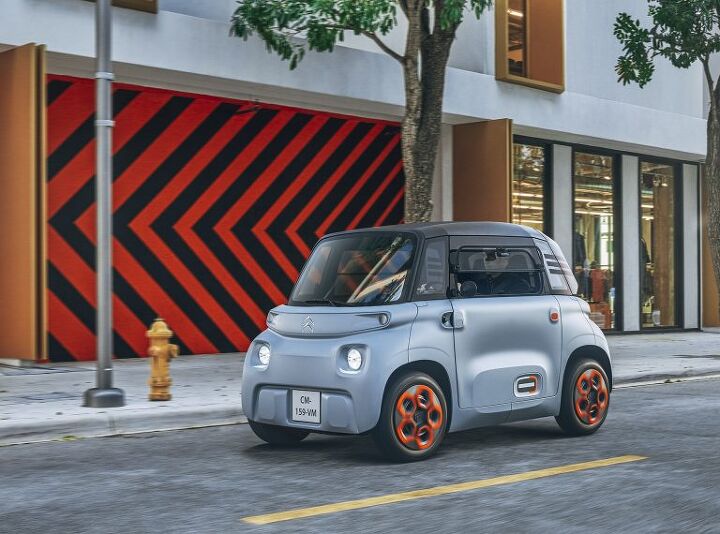
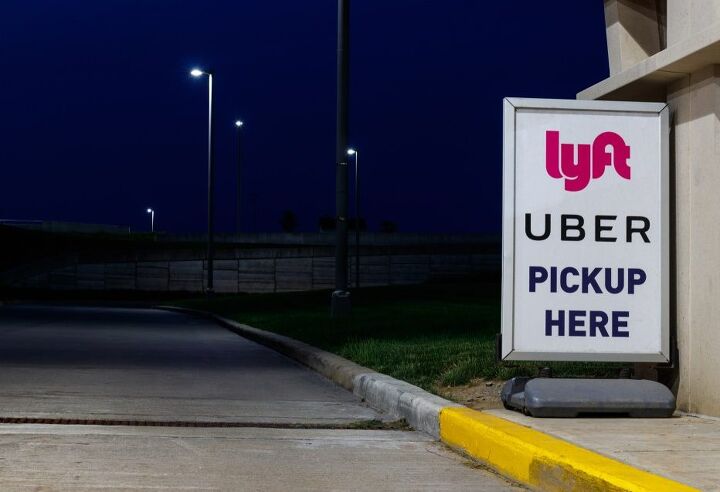




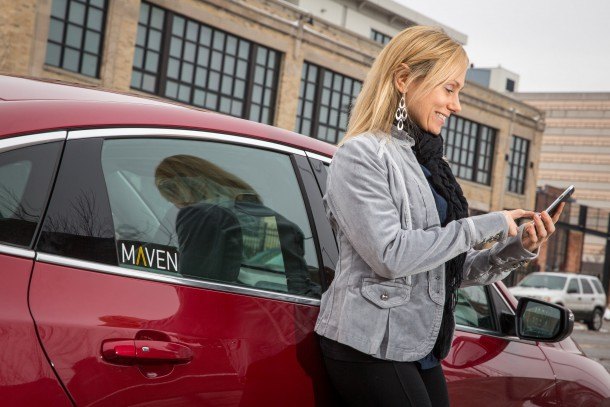
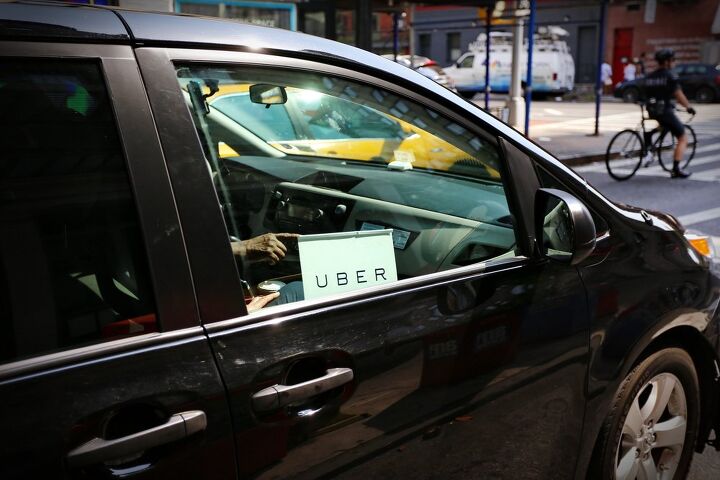


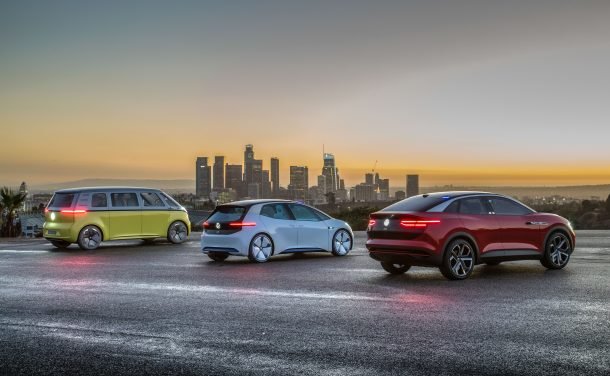












Recent Comments